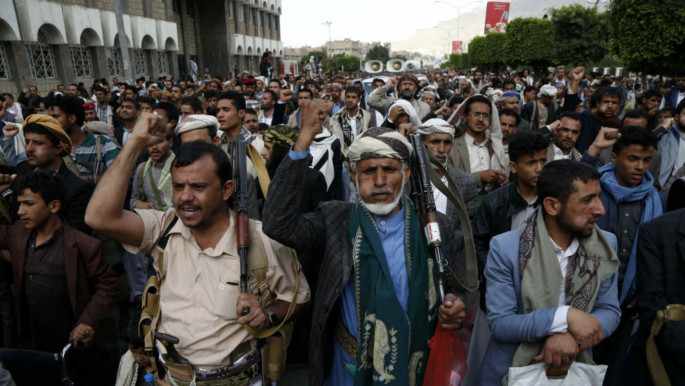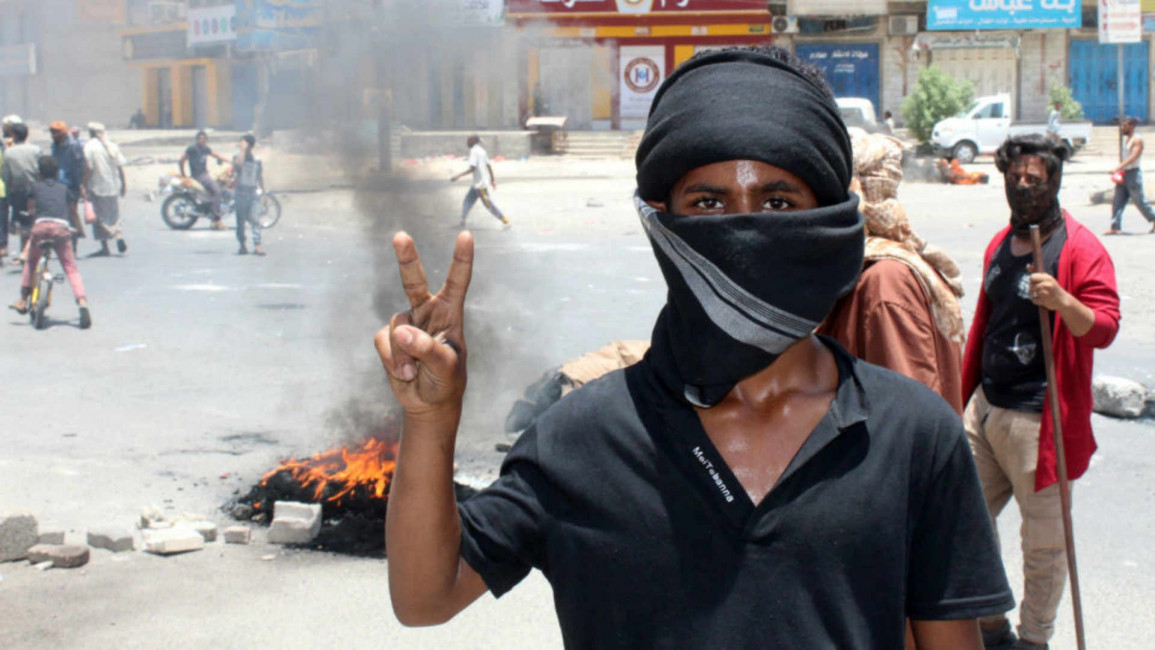
What's behind crumbling Saudi support in Yemen's south?
More often than not, though, these methods are eventually undone, and there comes a time when people draw a distinction between the overt actions and covert intentions of their leaders.
Last week, mass protests flared in Yemen's south, vocalising their deep-rooted anger towards the internationally recognised government, and the Saudi-led coalition. This coalition has been fighting the Houthi rebels in Yemen since March, 2015.
Over the last three years, Yemen's Aden and other southern provinces have been in sync with the Emiratis and Saudis. The southern people by and large had assumed that the coalition was working to restore peace in Yemen, and counter what they see as growing Iranian influence in the region.
However, what occurred in the south last week set a new precedent and represents another harsh blow to the image of the Saudi-led coalition, whose aerial campaign has caused countless civilian deaths. Since its military intervention in Yemen in 2015, people in the south have been reluctant to speak out against the Saudi and Emirati leaders.
But these protests tell us that this status quo is changing, with the added factor of government corruption and rising living costs causing people to now boldly express their anti-coalition feeling.
 |
Yemenis, south or north, appear to have lost hope and trust in the Arab coalition |  |
Yemenis, south or north, appear to have lost hope and trust in the Arab coalition. The rationale is obvious: The country is spiraling towards more tragedy and the economic situation has inflicted severe suffering on its civilians.
The Yemeni rial has gone down drastically against the dollar over the past few months, reaching a record low of over 600 rials for US$1. In March 2015, US$1 was equivalent to approximately 220 rial.
This reality has caused the Saudi-led coalition to be perceived as aggressively hegemonic military force, that puts the dignity of Yemenis and the economy of the nation at the bottom of its list of priorities.
Falling currency, rising fury
Referred to as the temporary capital of Yemen, Aden earlier this month witnessed large rallies staged by desperate residents who set tyres ablaze and marched on the city streets. Their message was clear: Since 2015, the internationally recognised government and the Saudi-led coalition have not been meeting people's basic expectations.
It once seemed unimaginable that the southern people would be critical and disapproving of the Saudi and Emirati involvement in Yemen. But as time has gone by, the coalition has failed the test, and the people have grown daring enough to call for the expulsion of the Emiratis and Saudis alike.
 |
|
| Protesters in Sanaa also took to the streets last week to voice their opposition to the Saudi-led coalition [Getty] |
While the southern port city, Aden, has endured insecurity, electricity shortages and water problems - among countless others - the town is also riddled with the huge billboards, emblazoned with photos of Saudi and Emirati leaders, though heir depiction as heroic icons no longer stands up.
The people are asking why the legitimate government, and the significant might of the coalition forces have been incapable of establishing security in the Houthi-free areas in Yemen's south? Why is the living situation as bad as in Yemen's north, where the Houthis are dominating?
Read more: Anti-government protests erupt in Aden over Yemen hardships
If the Yemeni government and the coalition have not been able to provide services for the people, why are they also incapable of fending off the continuous devaluation of the Yemeni rial? Such questions are countless, and they have pushed the people to lose confidence in the Arab coalition completely.
The awakening
Witnessing the popular backlash against the Saudi-led coalition, the government accused "some parties" of being intent on sparking chaos in the south. In the wake of the mass protests, the government pledged it will work to address the economic situation immediately.
While the protests have abated for now, people feel strongly they were wrong to believe the coalition had come to Yemen's rescue. They no longer buy false promises, and the recent awakening in the south cannot be devalued and should not be ignored. When the people revolt, no power can suppress their collective voice.
 |
The recent awakening in the south cannot be devalued and should not be ignored |  |
While it was the fuel price hike that might have served as the the catalyst for the recent turbulence, in 2014, President Abdu Rabbo Mansour Hadi also made a miscalculated decision to cut fuel subsidies in a bid to improve state revenues.
That decision had disastrous economic consequences, and contributed to the abrupt rise of Houthi popularity in Yemen's capital, Sanaa. At the time, the Houthis spearheaded the protests that garnered widespread support, but their desire to gain power and control made them into a major player in Yemen's civil war.
Similarly, the people have begun to understand the real agenda of the Saudi-led coalition in Yemen, which appears to focus on maintaining a fragile Yemen and blocking its attempts to consolidate the rise of a strong state.
The writer is a Yemeni journalist, reporting from Yemen, whose identity we are protecting for their security.
Join the conversation: @The_NewArab
Opinions expressed in this article remain those of the authors and do not necessarily represent those of The New Arab, al-Araby al-Jadeed, its editorial board or staff.



